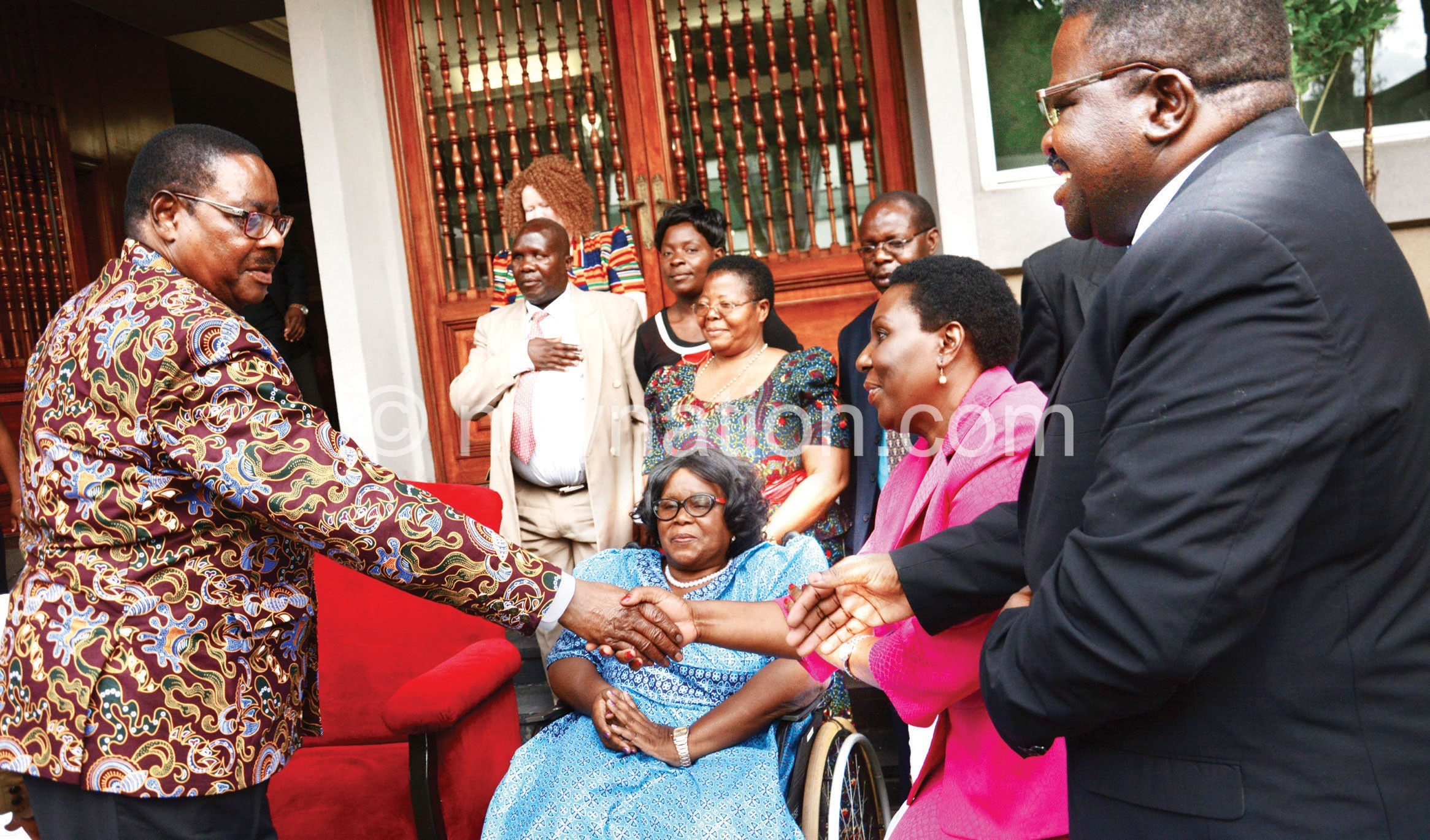Fedoma calls for employment quota
People with disabilities have asked for accelerated efforts to guarantee fair and equal treatment, telling President Peter Mutharika: “We deserve four percent of jobs in public service.”
The largely discriminated and excluded group spelt out the quota on Friday when Federation of Disability Organisations in Malawi (Fedoma) executive committee met Mutharika at Sanjika Palace in Blantyre.

D u r i n g t h e m e e t i n g , Fedoma executive committee chairperson Nita Hanjahanja said: “People with disabilities continue being sidelined when it comes to employment. Please introduce a quota system.
“We want four percent of the jobs in public sector to be held by people with disabilities. We have several qualified young Malawians with disabilities, but they remain jobless.”
S h e a l s o a s k e d f o r adequate funding for schools of persons with visual and hearing impairments, which are chronically underfunded and lacking assistive devices which they want government to subsidise.
Fedoma wants government to train no less than two sign language interpreters per district to bridge the gap between Malawians with special needs and providers of vital services, including education, health, justice and governance.
They demanded enhanced efforts to eliminate inequalities because Malawians with special needs still face exclusion everywhere they go despite the enactment of the Disability Act in 2012.
They are concerned that government remains in breach of the law by delaying to create the national advisory committee four years on. However, Minister of Gender, Children, Disability and Social Welfare Jean Kalirani said the Dimba, who sits on the party’s finance committee in Parliament, said the move was “unfortunate”.
“It is very unfortunate. The money that was disbursed came from taxpayers, and it is unfortunate that once Govt gives up on recovering Yedef loans again it was party zealots who benefited from this programme. You remember in the case of MSB Bank, government also spent K6 billion to bail out defaulters mostly who were politically connected and up to now, no single tambala has been reclaimed.
“You also recall the issue of the tractors in which government took a loan from India and bought the tractors in the name of the poor before selling the same to politically connected people at below market prices. This is a trend,” said Dimba.
M i n i s t r y o f L a b o u r spokesperson Symon Mbvundula said Treasury and Medf were better placed to explain the decision to give up the loans. Both Minister of Finance, E c o n o m i c P l a n n i n g a n d Development Goodall Gondwe and Medf chief executive officer, Joe Manonga, said they were not aware of any plans to write off the loans.
“I have just returned in the country, but prior to that I do not recall any discussion about the issue. Maybe cross-check with Secretary to Treasury,” said Gondwe.
On his part, Manonga said no decision pertaining to the loans has been communicated to the institution, which took over administration of the loans through the merging of the separate government microloans bodies mandatory committee will come into force at the end of the ongoing review of the four-year old legislation.
Besides creating for a special fund for people with disabilities, the reform of the Disability Act will see Malawi Council for the Handicapped (Macoha) renamed Malawi Council for Disabilities. I n t e r e s t i n g l y, K a l i r a n i announced that her ministry will train and employ 30 sign language interpreters by March.
“We want to train 100, but we will start with 30 early next year,” she said. Mutharika gave audience to 11 interest groups a few days after he graced the National Day of People with Disabilities on Saturday last week.
During the December 3 commemoration, the President gave a personal account of how he and his brother, former leader Bingu, fought their peers to safeguard their sister who was often marginalised and maligned because she could not walk.
He reiterated that disability is not inability, saying: “They are human beings and they have rights. They need to be treated with respect.”
He urged Malawians to stand up for the rights and wellbeing of the unique group which suffers disproportionately in times of conflicts and disasters. Pa s t o r B e r t h a M a s i ku , chairperson of Fedoma board of trustees, termed the awareness period as one of the milestones following the passing of the long-awaited Disability Act, but urged government to integrate interests of women and children with disabilities in its activities.





